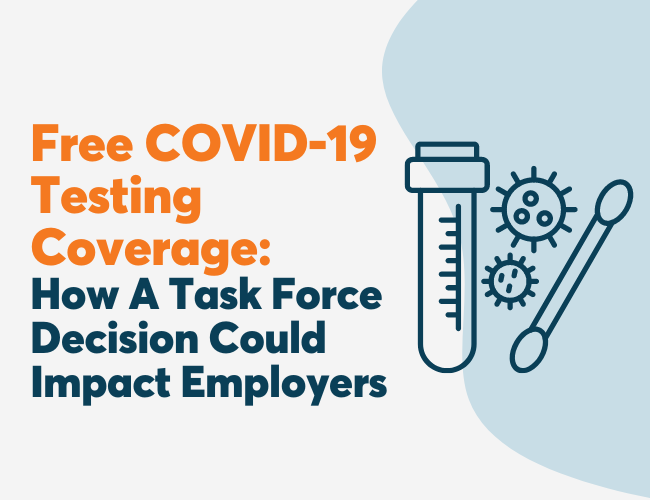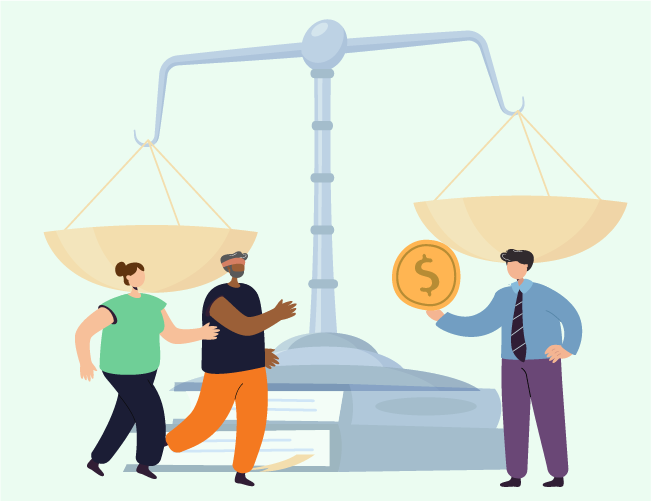Although the measure was first announced in September, the details of the requirement for large US companies to implement vaccine mandates was released on November 4 by the Occupational Safety and Health Administration (OSHA). Companies of 100 or more employees have until January 4 to ensure all workers are either fully vaccinated or submit to weekly testing and mandatory masking. The new rules and deadline launch corporate America into the next chapter of their role in preventing the spread of COVID-19. It is expected to impact 84 million private-sector employees across the US, including 31 million who are believed to be unvaccinated. This number may seem smaller than expected, but it is the product of many large employers, including the Federal government, already implementing a vaccine mandate.
It is important to note that at least 27 states filed lawsuits challenging the rule in several circuits, and the requirement has already been granted an emergency stay by the 5th US Circuit Court of Appeals. The administration says it is confident that the requirement will withstand legal challenges in part because its safety rules pre-empt state laws.
Regardless, employers with 100 or more employees need to begin preparing for this new rule to go into effect. The end of the year is typically a hectic time for all companies, and if the ruling is upheld, employers will likely not have enough resources to implement and communicate effective measures to comply. As companies begin to prepare, there will undoubtedly be lots of questions. Below are a few common ones that will help you begin to better understand the rule. If you have additional questions or want to learn how Wellable is helping employers implement an effective and compliant vaccine mandate, do not hesitate to reach out via email. A Wellable team member will gladly assist.
Covered Organizations
Are all companies with more than 100 employees required to comply with the new OSHA rule?
The OSHA rule applies to private sector organizations, including nonprofits. Public sector organizations must comply with the state rules, which are required to be at least as effective as the ones outlined by OSHA. For avoidance of doubt, private colleges and universities are covered under the OSHA rules while public ones will be treated as public sector organizations.
There are a few exceptions for private-sector employers. For example, health care providers must comply with a different set of rules, which are stricter and were released in June, and government contractors and Medicare and Medicaid providers have their own mandate.
In short, if you are a private company or nonprofit and have more than 100 employees, you should begin to determine how you will verify vaccination and weekly testing.
Is the employee threshold based on a specific location?
The 100-employee requirement is determined based on the entire employee population in the US, not a specific office location. International employees do not count toward the total.
If multiple unique companies share an office space (e.g, co-working), the total number of employees in the office space will not be counted to determine eligibility. Only employees connected to a business need to be counted.
Do all employees need to be vaccinated or tested weekly?
Employers will not need to enforce the rule for employees who are 100% remote or ones who work exclusively outdoors. If an employee primarily works remotely or outdoors (may be in the office rarely or occasionally), they must comply with the mandate.
What are the important deadlines?
All employees must be vaccinated or be tested weekly by January 4. The deadline for employers to enforce the mask mandate is December 5.
Qualifications/Exemptions
Which vaccines qualify an employee as meeting the mandate standard?
Employees can get any vaccine listed for emergency use by the World Health Organization (WHO). This includes one dose of the Johnson & Johnson vaccine or two doses of the Moderna or Pfizer vaccines.
What kind of exemptions can an employee claim?
All employees have the option to claim one of two exemptions: (i) medical or (ii) religious. A medical exemption for certain conditions protected under the Americans With Disabilities Act (ADA) should require employees to submit a doctor’s note. Although there is an exemption option for sincerely held religious beliefs under Title VII of the Civil Rights Act, it is important to note that no major religion has barred its members from taking the coronavirus vaccine. It is up to employers to determine who qualifies for a religious exemption.
Should employees be given paid time off to get vaccinated or recover from vaccine side effects?
Employers must provide up to four hours of time off for an employee to get vaccinated as well as paid sick leave to recover from side effects.
How will vaccine verification be determined?
Employers are expected to receive and keep records of employee vaccination status and proof (e.g., photos of a vaccination card or a signed and dated employee attestation). Wellable and other platforms offer technology tools to help facilitate this process.
Do employers need to offer a testing option?
Each employer will have the option to allow employees to test weekly in lieu of being vaccinated. If this is an option for an employee, they will still be required to wear a mask in the facility. Costs of testing may be covered by the employer at their discretion. All COVID-19 tests approved for emergency use by the US Food and Drug Administration (FDA) are permitted. Employers do not need to provide paid time off for testing.
Will employers be liable if an employee experiences an adverse reaction to a vaccine?
Legal scholars suggest employers will not be held liable for adhering to the OSHA rule.
Consequences For Non-Compliance
If an employee refuses to comply, can they be terminated?
Without an exemption, non-compliant employees can be disciplined by their employer how they see fit. This includes termination.
Will there be penalties if an employer does not comply?
Enforcement of compliance will be managed through investigations, which will be triggered by a whistle-blower system that allows employees to report violations. OSHA can charge up to $13,653 per serious violation.












